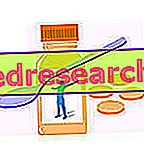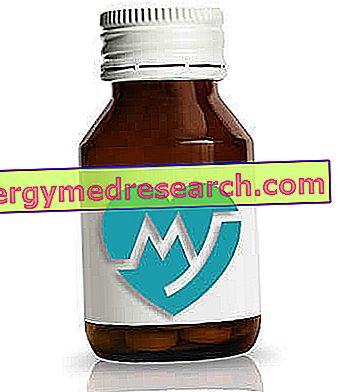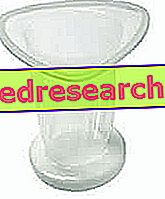What is Allicin
Allicin, or diallyl thiosulfinate, is the most important and representative active ingredient of garlic ( Allium sativus ).

Allicin is not found in the whole bulb, but is formed when the segments that form it - called cloves - are cut, chewed or otherwise shredded. Following these mechanical actions, an enzyme called allinase is released from the vacuolar juices, which acts on an amino acid, the alliin, transforming it into allicin. In turn, this unstable substance is a precursor to diallyl disulfide, a volatile molecule that originates from the loss of an oxygen atom from the allicin molecule. Thanks to the high volatility, diallyl disulfide gives the minced garlic the typical pungent smell.
In addition to garlic, allicin can be isolated from onions and other species belonging to the Alliaceae family. In nature, it defends these plants from the aggression of parasites and herbivores, carrying out the same antibacterial properties even on humans.
Allicin and Health
Against atherosclerosis
Allicin appears to be able to protect from atherosclerosis, thanks to its ability to improve the blood lipid profile and reduce inflammation. This substance is also associated with antihypertensive, antioxidant and antithrombotic properties (fibrinolytics and antiplatelet agents). Certainly it is not a question of real healing actions, but - if you like - garlic can still help to slightly lower blood cholesterol values and blood pressure; therefore, one should not expect miracles from its use, nor think that it can replace conventional drugs or be taken at high doses without a prior medical consultation.
Against the Intestinal Worms
The antibacterial properties of allicin, together with those of other substances contained in the bulb (such as the powerful antibiotic allistatina), justify the traditional use of garlic in freeing the digestive system from parasites and intestinal worms. Aqueous extracts of allicin have been shown to be active against Staphylococcus aureus strains resistant to the methicillin antibiotic.
Mode of use and side effects
As a rule it is recommended to take 4 grams a day of fresh garlic, or garlic powder in a measure of 600-900 mg / day.
If taken at high doses, in addition to heavily interfering with other medications taken (especially with coumadin-type anticoagulants), it can cause nausea, vomiting, meteorism, diarrhea and alterations of intestinal microbial flora, of greater severity in children.
In large quantities, garlic is also contraindicated in subjects suffering from low blood pressure, in nurses (it gives the milk an unpleasant taste) and to those suffering from gastric ulcer or gastroesophageal reflux.



